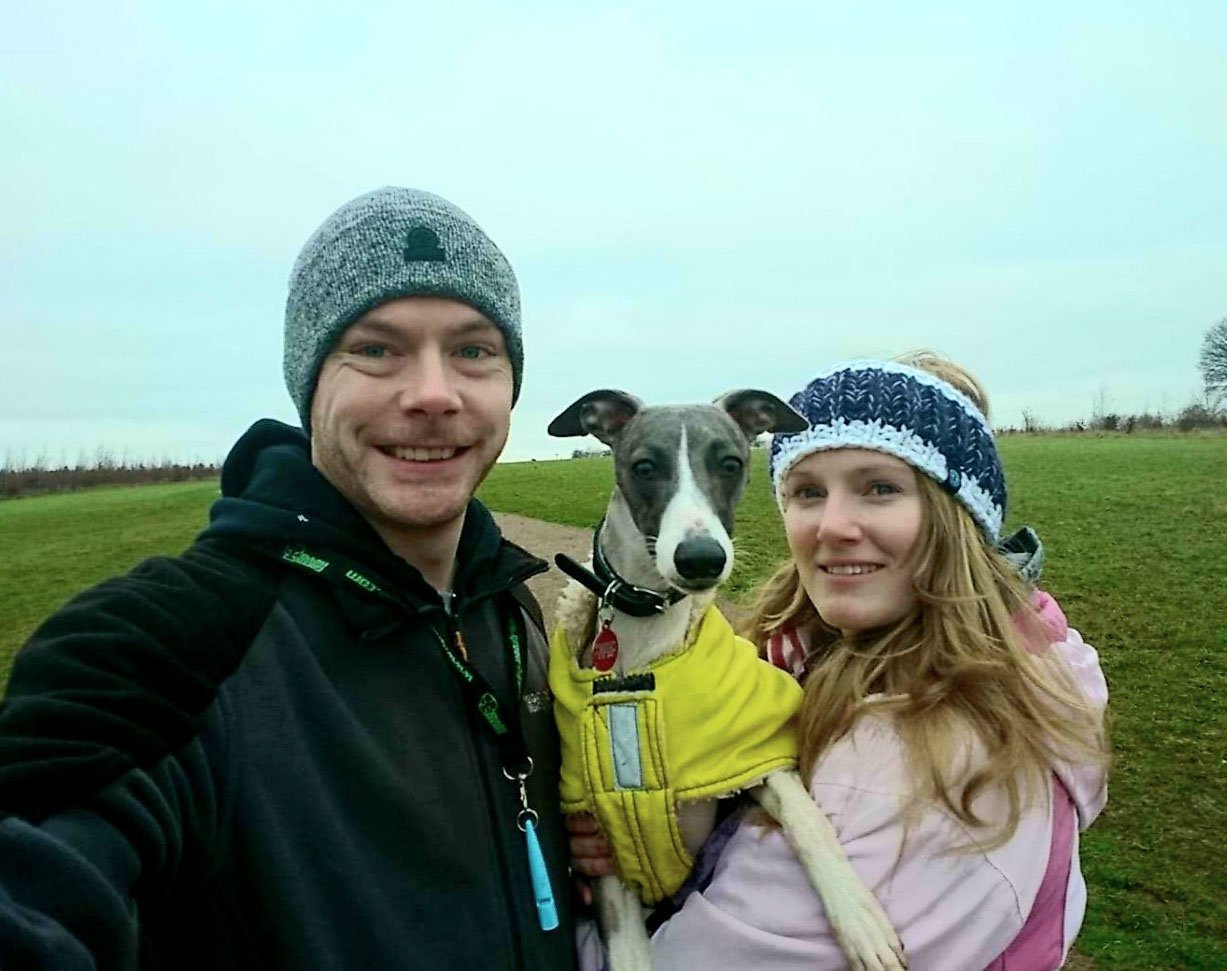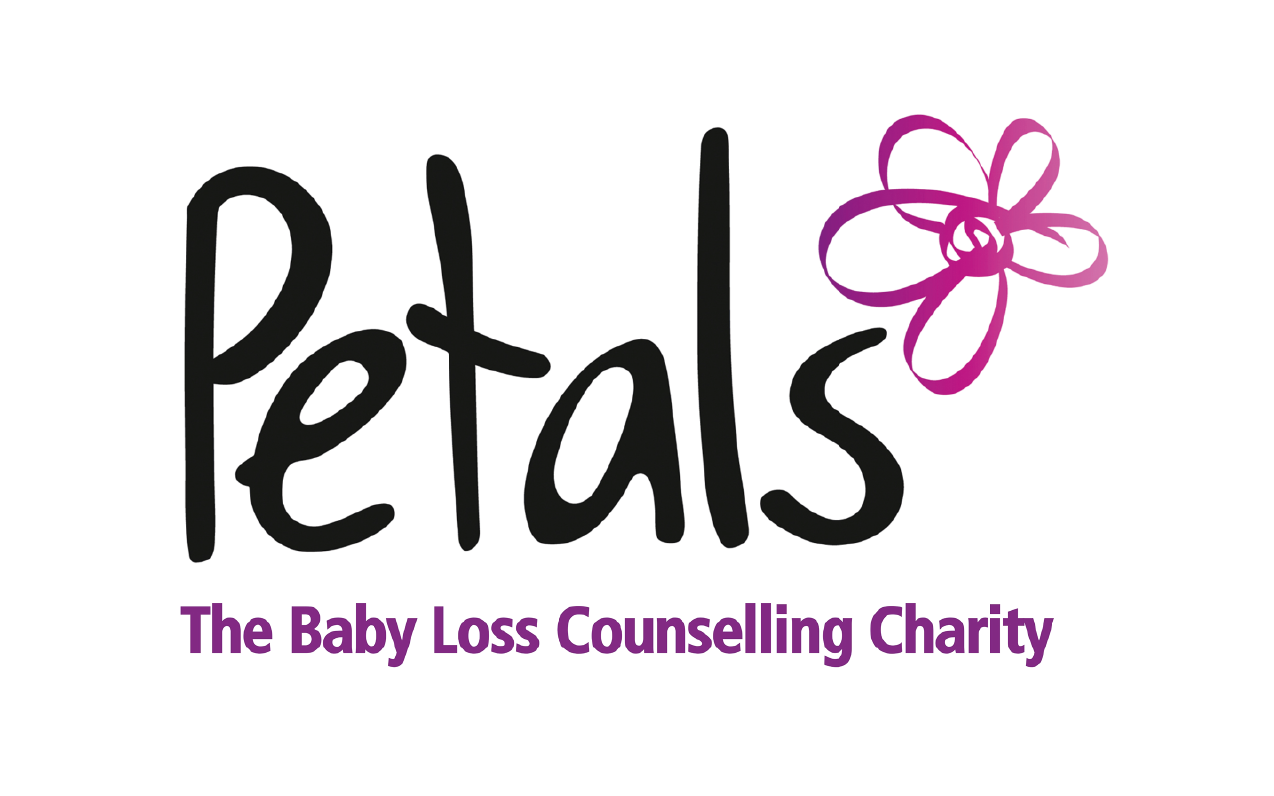
“I think if when you leave that hospital if there was a plan in place – as simple as ‘here is this charity’s phone number’ – just to know that you can get specialist care moving forwards would have been so beneficial. We felt so lost and abandoned. No one was looking out for us. We didn’t have that person we could talk to.”
Meet Helen
Helen, a nurse from Hertfordshire, lost her son Edward in January 2020. He was born at 20 weeks, alive, but passed away 25 minutes later. She has had the added trauma and isolation of grieving during lockdown. Helen and her husband have been receiving online counselling through Petals since July.
Can you tell us your and Edward’s story?
Our story started about a year ago. My husband Mark and I decided to try for a baby and were very lucky – falling pregnant very quickly. We had had an uncomplicated pregnancy up to about 15 weeks. At this point I experienced some lower pelvic pressure. I relayed this to the professionals, but they were not concerned. We went for our 20-week scan and on the 6th January, we were told we were expecting a healthy baby boy – they had no concerns. Unfortunately, three days later while I was at University in London, I started experiencing lower pelvic pressure. I was sent to the nearest hospital and had a very fast delivery of our little boy there.
Edward was born alive, a beautiful little boy and he lived for about 25 minutes.
The midwives there were lovely. My husband arrived and we had to say our goodbyes to Edward. The next day we left the hospital, without him, which was incredibly difficult. We went home being told we would have a post-mortem to find out what had happened. We did struggle during this time, in part because no-one really knew what to do with us, having delivered out of our area. We fell between the services.
We were told to contact our GP, who then told us to contact some charities that just didn’t suit what we needed. Eventually, we found Petals.
How did you come to Petals? What has been your experience of counselling?
We had counselling arranged for us by my consultant who will look after us in the future. We have been given six sessions, most my husband and I have had together, which has been very beneficial to both of us. I had one session for me where we went through what happened to me.
Online is a different experience, I think there are certain things face to face will be better for but given the circumstances with the Coronavirus pandemic it was right to hold the sessions online.
It was by no means second best, and the biggest positive was that I didn’t have to leave the safety of my home, I didn’t have to come into contact with any potential triggers. We set up online Zoom meetings which I had never done before; and Jacqui, my counsellor, talked me through how it worked. I think going forwards it’s such a useful tool for those not local to a Petals service.
After you lost Edward what did you struggle with the most?
I most struggled with coming to terms with that I was no longer pregnant, and that future had been stripped from us. It felt like a bad dream, and then when you wake up in the morning it’s not. Particularly when there are people you know in close proximity who are also expecting, and I know the statistic that 1 in 4 pregnancies or babies are lost. It’s the thought that I’m that statistic.
You have to somehow find the energy to accept that it is happening. I went into a state of mind where I didn’t want to see anyone because I felt so ashamed that my body had failed my son. It was so difficult to come to terms with that, actually I don’t think I am. In a way the lockdown situation was a blessing in disguise. The struggle then came with reintegrating into my world. My counselling has helped me move through that.
When you lose a baby your family and friends feel that too. They hurt with you and for you. To be able to have my Petals counsellor to talk to about what we’re feeling – we’re able to relay our concerns, hurts and worries without fear of upsetting her. And she is able to help us make sense of how we’re feeling. That support has been so invaluable. It’s something you have to be trained how to do.
Does your experience of counselling meet your expectations?
My expectations of counselling may differ from many others. I’ve never had counselling before. My understanding prior would have been ‘you go to a counsellor, spill your heart out, click your fingers and you feel better’. I now know that isn’t the case. Again, talking to that person who isn’t emotionally attached to you is vital.
What I didn’t expect was that I would build up such a positive therapeutic relationship. It’s a wonderful thing. You need to be able to trust your counsellor to be able to open your heart up to them.
My expectations have been met and taken beyond. Particularly in helping my husband as well. He joined the sessions to support me, and even though he was reluctant I feel he has benefitted too.
What in your view should have been different in how you were treated following what happened to Edward?
It would have helped us to have this kind of support through Petals earlier on. I fell between services; I was booked at a different hospital to what we delivered. It wasn’t that the bereavement midwives didn’t want to help – just no one knew what to do with me. I was told to contact my GP for support. We went around in multiple circles, I tried some other charities, but you didn’t get that one to one help and continuity which is what I felt was needed.
I think if when you leave that hospital if there was a plan in place – as simple as ‘here is this charity’s phone number’ – just to know that you can get specialist care moving forwards would have been so beneficial. We felt so lost and abandoned. No one was looking out for us. We didn’t have that person we could talk to.
We accessed Petals six months after we lost Edward, and I think it would have helped to have been earlier. I understand in lockdown everything did fall to pieces in the NHS, but that doesn’t excuse that our loss happened in January and it wasn’t until July that we started our counselling sessions – that is a long time to be mulling things over on your own.
If that could change, I think that would benefit so many women who are in a similar situation to us – leaving hospital knowing you have somewhere to access support – that is what I would love to see changed.
What does your future look like?
Our future is unwritten. We hope that we will see light at the end of the tunnel, but I won’t have that blind optimism anymore. While our counsellor has helped us see things in a more positive light this will be with us forever. I don’t want us, or any of our friends and family to forget Edward. He will always be our firstborn child, our first son, and to both of our parents their first grandson. I will parent him as I would parent a future child, he’s that special.
My parenting of him will be creating a legacy, so telling our story is for Edward. If I can change any policies in the NHS it’s for Edward, if I can help a friend or colleague to guide their path in the future it’s for them and Edward. That’s my future. He is part of it, he always will be.
What does Petals mean to you?
For us it’s meant help. We’ve had help, support, we been able to talk and to help us start the process of stepping forwards. Petals has helped us start that process. Without the support from Petals I think we’d still be stuck in a rut. It’s enabled my husband and I to support each other in a more positive way. Our counsellor is incredibly experienced in what she does, and you need that experience. Petals and our counsellor have surpassed what I expected.
